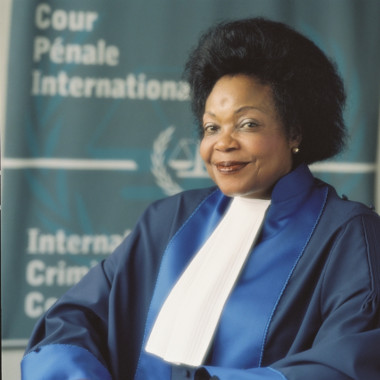
Recent Speakers

Ambassador Princeton N. Lyman
Senior Advisor to the President of the United States of America.
Ambassador Princeton N. Lyman served as United States special envoy for Sudan and South Sudan from March 2011 to March 2013. As special envoy he led U.S. policy in helping in the implementation of the 2005 Comprehensive Peace Agreement. Ambassador Lyman previously held the position of Ralph Bunche Fellow for African Affairs at the Council on Foreign Relations (CFR). He was also an adjunct professor at Georgetown University and at Johns Hopkins School for Advanced International Studies. From 1999 to 2003, he was executive director of the Global Interdependence Initiative at the Aspen Institute.
Ambassador Lyman’s previous career in government included assignments as deputy assistant secretary of state for African affairs (1981-1986), U.S. ambassador to Nigeria (1986-1989), director of refugee programs (1989-1992), U.S. ambassador to South Africa (1992-1995), and assistant secretary of state for international organization affairs (1996-1998). From 2008-2010, he was a member of the African Advisory Committee to the United States Trade Representative. He began his government career with the U.S. Agency for International Development and served as USAID director in Addis Ababa, Ethiopia, from 1976 to 1978.
Ambassador Lyman is a member of several boards, including the National Endowment for Democracy, the Niger Delta Partnership Initiative, the Buffleshoek Trust in South Africa, and the board on African science academy development for the National Academy of Sciences. Ambassador Lyman has a PhD in political science from Harvard University. He has published books and articles on foreign policy, African affairs, economic development, HIV/AIDS, U.N. reform, and peacekeeping. He has published op-eds in The Washington Post, Wall Street Journal, Baltimore Sun, Miami Herald, Los Angeles Times, and International Herald Tribune. His book, “Partner to History: The U.S. Role in South Africa’s Transition to Democracy” (U.S. Institute of Peace Press), was published in 2002. He was co-director of the Council on Foreign Relations Task Force Report, “More Than Humanitarianism: A Strategic U.S. Approach Toward Africa”, issued in 2006, and co-editor of “Beyond Humanitarianism: What You Need to Know About Africa and Why It Matters” (Council on Foreign Relations) published in 2007. Most recently he has published several articles on Sudan and South Sudan.

Judge Joyce ALUOCH (Kenya), First Vice-President
Judge as of 11 March 2009, for a term of nine years. First Vice-President of the Court as of 11 March 2015 for a term of three years. Elected from the African Group of States,
list A.
Judge Aluoch (1947) holds a Law Degree from the University of Nairobi, a diploma in Legal Studies from the Kenya School of Law and a Masters Degree in International Affairs (GMAP) from the Fletcher School of Law and Diplomacy, Tufts, University, Medford USA. Judge Aluoch was a Judge of the High Court of Kenya for over 20 years, and was elevated to the Court of Appeals, then the highest court in Kenya in December 2008. She is also an advocate of the High Court of Kenya. As a senior judge who was the vice-chairperson of the Judicial Curriculum Review Committee she has extensive experience in the training of judges, magistrates and paralegals in the provision of regional and international human rights instruments, a program she undertook in conjunction with the International Association of Women Judges. Judge Aluoch contributed to the promotion of the rights of the child, as chair of the African Union Committee of Experts on the Rights of the Child, preparing the rules of practice and procedure for the committee as well as guidelines for initial reporting to the African Committee by Member States of the African Union. Special missions undertaken by Judge Aluoch include negotiations entered into on behalf of the African Union with the Government of Sudan to ratify the African charter to secure the rights of children, and a fact-finding mission to war-torn northern Uganda to report on the effects of the war on children. She also served for six years as vice-chair and member of the UN Committee on the Right and Welfare of the Child and chaired a task-force that worked toward the implementation of the new Sexual Offences Act, 2006, aimed at developing a national policy framework and a national action plan for handling sexual offences in Kenya.





